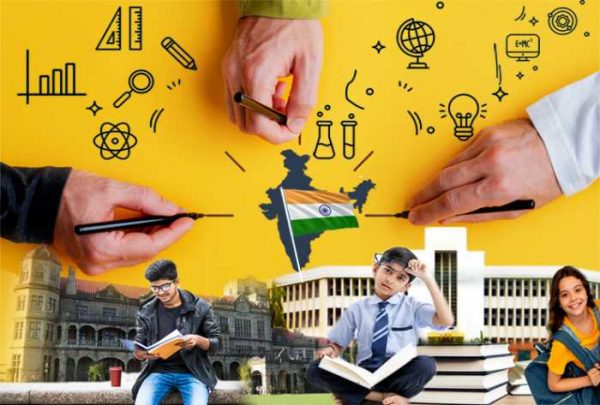 Union Education Minister Ramesh Pokhriyal ‘Nishank’ has today clarified that the NEP 2020 upholds the Reservation Policy enshrined in the Constitution of India. Following is the text of the Minister’s letter giving the details:
Union Education Minister Ramesh Pokhriyal ‘Nishank’ has today clarified that the NEP 2020 upholds the Reservation Policy enshrined in the Constitution of India. Following is the text of the Minister’s letter giving the details:
“This is apropos media reports attributed to PTI that have appeared on and around 24th November 2020 questioning whether the NEP 2020 upholds the Reservation Policy as in enshrined in the Constitution of India. As per the articles published, some of my political friends have been raising doubts that the National Education Policy- NEP-2020 may dilute the provisions of reservation in the educational space of the country. I would like to clarify with all authority in my command that there is no such intention, as is clearly reflected in NEP-2020. The policy affirms by the constitutional mandate of reservation enshrined in Article 15 and Article 16 of the Indian Constitution. I think it does not need any further reiteration of provisions of reservation in the NEP-2020 which is already working within the framework of the Indian Constitution.
Various Entrance Examinations like JEE, NEET, UGC-NET, IGNOU were organized after the declaration of NEP-2020 and many appointment processes were also held in educational institutions, but we have not received a single complaint of dilution of reservation provision so far. It is difficult to understand the meaning of raising apprehensions after 4-5 month of the declaration of NEP, that too without any fact to support. I reiterate that successful ongoing programs and policies will continue with new efforts to bring educational inclusion of SCs, STs, OBCs, Divyang and other socio-economic disadvantageous groups. I would like to make it absolutely clear that my Ministry will take every appropriate action if we receive any complaint in this regard.
As we know the NEP-2020 emerged and evolved from rigorous consultations of all the stakeholders’ students, teachers, parents, educational administrators, educationist, non-teaching staff and society as a whole, through grassroots consultations from village level to state level, zonal and national level consultations, thematic expert consultations, scrutiny of various committees such as Committee for Evaluation of NEP, Committee for preparation of the Draft of NEP, online consultation through MyGov.in etc. In this way, it has shaped up as people’s document guided by Prime Minister Narendra Modi ji’s principle- Sabka Sath, Sabka Vikas. That is why this NEP has emerged as a sensitive commitment for educational inclusion of all the groups of our society.
To give special policy emphasis for their educational inclusion, NEP framed a cluster of SCs, STs, OBCs, Divyang, girls, women, trans/gender, minorities, geographical marginalized, and other socio-Economically and culturally deprived groups under a cluster- ‘Socio-economic Deprived Group’s (SEDGs). To address the issues SEDGs communities, NEP-2020 made a provision to form various special Educational Zones based on educational marginality where coordination of various ongoing and new support and inclusive schemes will be evolved to develop educational inclusion of SC’s, STs, OBCs, Divyang, and other deprived communities. Educational leaders to work within the deprived communities in these SEZs will be developed. This is a unique program which will help to evolve an educational workforce from the SDGs group who will be more sensitive towards educational inclusion of deprived groups. This scheme will also create new job opportunities for educational leaders who will emerge from SEDGs groups. The scholarships schemes, cycle distribution schemes, direct cash transfer for educational inclusion of the deprived and many other supportive government schemes will help us to bring educational inclusion of SEDGs groups.
For the educational inclusion of girl child and women, NEP has made a provision to form a ‘Gender-I Inclusion Fund’ to initiate various support schemes for the inclusion of gender-based deprived social and biological groups. The NEP-2020 has further made many provisions to support minorities, their educational initiatives and their inclusion in the educational sphere of the nation. As per the policy, the opening of minority schools and colleges will be encouraged. The alternative forms schools will also be supported under NEP-2020. The provision of special scholarships to develop the capacity to participate in the educational sphere among minority students has been provided.
The policies and schemes in NEP are creatively designed by our educational policymakers under the NEP framework. I firmly believe that this path-breaking new Policy is going to emerge as an important intervention in the history of Indian education for creating educational inclusion of the SCs, STs, OBCs, Divyang and other deprived social groups.
I would also like to reaffirm the commitment of the Government, which can be seen by the passage of Constitutional amendment giving a 10-year extension to reservations for Scheduled Castes and Scheduled Tribes in the Lok Sabha and State assemblies.
I hope my views on this historic new policy correcting the wrong impressions others might have, maybe published so that the people of the country may know the correct version.”

